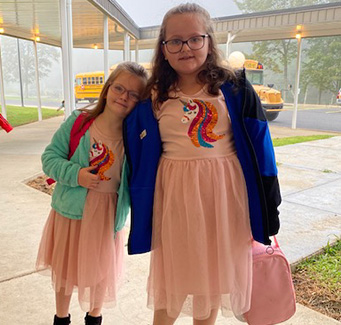

STUDENT SERVICES
We believe student success is dependent upon more than an excellent academic program. That’s why we advocate for the whole child and offer a variety of student services in our schools. If you have questions about the services your child receives or would like more information about the resources we can provide, please give us a call.
Community-and School-Based Behavioral Health Services
Our Community- and School-based Behavioral Health Services (CSBBH) program offers services to students who have serious emotional or behavioral problems that affect how they function at school, home, or in the community. Providers work closely with the students and families to develop problem-solving skills, resilience, social and emotional learning skills and self-regulation, as well as positive connections with adults in the school.
If you do not wish your child to receive mental health services, please sign and return a waiver.
HOPE Program
The Helping Our Pupils Excel (HOPE) program offers outpatient therapy sessions within the school for students exhibiting symptoms related to ADHD, depression/anxiety, trauma, self-injury, suicidal/homicidal feelings, or anger/aggression. Specialists from the Dickinson Center provide all therapies, with parental consent, and bills the family’s insurance.
LIFE Program
Our Living in Family Environment (LIFE) program is a school-based prevention program that provides support to elementary students and their families who may be struggling with behavioral, social-emotional, or academic issues. Referred families will be contacted by a LIFE program caseworker from the Dickinson Center who will help develop family-centric goals to address specific student needs.
On-site Mental Health Specialists
Our resident mental health specialist offers a variety of services to students within our district, including therapeutic treatments for anxiety or depression, issues with executive functioning, reintroduction into a classroom environment, emotional issues, trauma, self-injury, anger, or suicidal/homicidal feelings. The mental health specialist also offers brief, on-the-spot interventions for students struggling to attend class instruction. Specialists from the Dickinson Center provide all therapies with parental consent, and bills the family’s insurance.
Homeless Students
The Education of Homeless Children and Youth (EHCY) works with schools to ensure homeless children receive the same educational rights and protections as their non-homeless counterparts. Homeless children are those who(se)
- lack a fixed, regular, adequate nighttime residence;
- share housing with others due to housing loss or economic hardship, whether living in a shelter, with extended family members or friends, or in a hotel or campground;
- primary nighttime residence is a public or private place not designed for regular sleeping such as a park, hospital, car, bus station, or abandoned building; and/or
- are migratory or not living with legal parents/guardians.
Children in these circumstances may not be denied school enrollment or admittance and may be eligible for additional services. At JASD, we provide these students (and others who are experiencing sudden hardship due to the loss of a job, housing, or family member) with school supplies, emergency clothing and food, as well as some personal items. If you or your children need help, please contact us.
English Language Learners
District employees screen students to determine language learning needs using a home language survey. If it is determined that a student needs EL programming, we will work with families to deliver appropriate ESL curriculum and accommodations as the student becomes proficient with the English language. If you or your child is in need of a translator, please let us know.
Student Assistance Program
The Student Assistance Program (SAP) is a school-based prevention program that provides services to students experiencing barriers to their academic success. Barriers may include a change in family structure; changes in friend groups; anxiety, irritability, and depression; failing or a sudden drop in their grades; grief and loss; or substance abuse. JASD partners with the Dickinson Center and Alcohol and Drug Abuse Services of Elk County to provide supportive counseling services to students, and connect students and families with further support as needed.
Title I
Title I is the largest federal aid program for elementary and secondary schools. Funds allocated under Title I are used to improve services and outcomes for low-income children. As a Title I designated school, we spend allocated funds on improving student reading performance, boosting parent communication and involvement, and offering intervention services to struggling elementary students. Learn more about our Title I program on the About Our District page.

